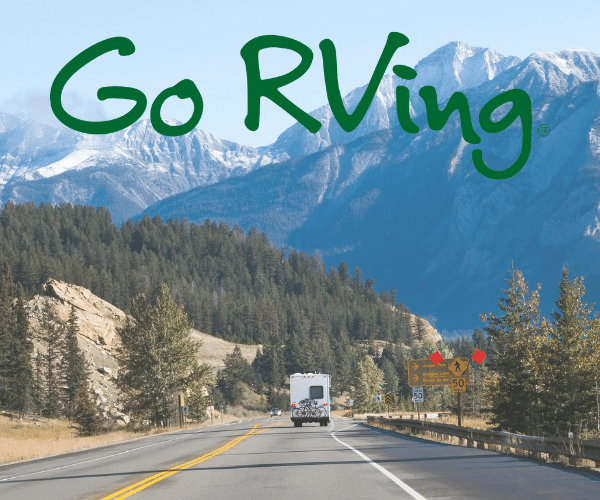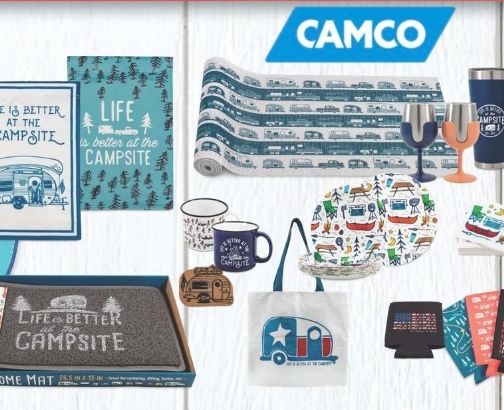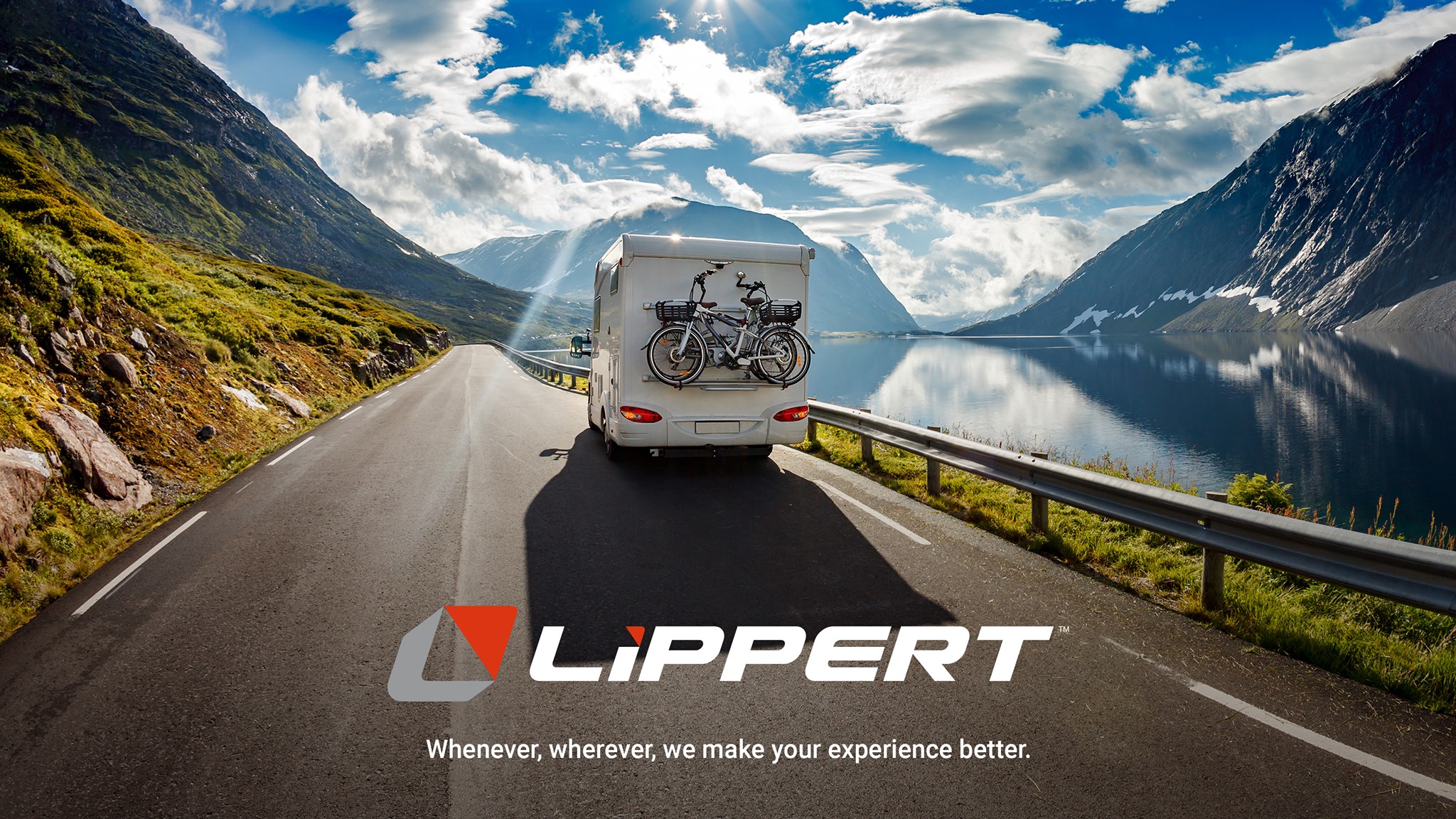Podcast: Play in new window | Download (Duration: 40:21 — 16.2MB)
Have you ever been told not to park your RV on the grass when storing it for winter? Have you wondered what calamity would befall it if you disregarded this advice? Have you wondered if that advice was the Gospel truth or an old wives tale? Well, on today’s podcast I am answering Frequently Asked Questions sent in by the Girl Campers.
Which comes first, choosing your camper or tow vehicle? Sent in by Vicki Tripplet.
This is such a great question. You will need to ask yourself a few questions to get the answer which, of course, is going to be different for everyone.
Let’s start by approaching this as if we are speaking to recreating campers. Those weekend warriors and two week summer vacation RVers. In other words, not full timers or retired people.
Most of us drive our car every day so it is important that we really like what we are driving. There are some people who have a vehicle that they use just for towing but most do not. Their tow vehicle is their everyday ride.
The question I would be asking myself is:
Do I have an RV in mind that I really love and am unwilling to change? If so, you may have to change tow vehicles to accomodate that . Walter Cannon gave a great explanation of matching tow vehicles to RV’s. The link for that very important topic is here.
Conversely if you own a car or have brand loyalty to a vehicle that you don’t want to stop using, you may have to compromise on the RV you choose in order to keep that tow vehicle. The good news is that there have never been more options for the lightweight towable world.
Full timers need to be asking different questions.
- Where do I plan to travel?
- Will I be boondocking on BLM land and need an off road model or larger tanks and solar options?
- Will I be in one place for a long time, like those who park in Maine all summer and Florida all winter but don’t really travel in their RV’s.
- Will I be outdoors a lot and just want a comfy bed?
- Will I be working remotely and requiring an office area, wifi capability and a floor plan that won’t make me stir crazy if I am in the RV for long periods?
A good place to start is to listen to all of the Girl Camper Podcasts from last year where we covered the pros and cons of all the different RV types.
- Re-imagining the Toy Hauler
- Pros and Cons of the Class C Motorhome
- The Pop Up Camper Explored
- The Pros and Cons of Teardrop Trailers
- The Pros and Cons of Class A Motorhomes
In the final analysis, it is such a personal decision and I recommend not signing on the bottom line, especially for full timers, without first renting the unit you are considering through RV Share or Outdoorsy. That’s a great way to get a realistic feel for the unit before you buy!
What do people on the road do for full time health insurance? Sent in by Chiarrai O’Mathghamhana
This is a tricky topic because most networks operate in a geographic zone so you’re signing up for doctors In Network in a prescribed area and some insurers require policy holders to live “in state.” You have to carefully search this out though and do your homework.
Recently the Road Life Project, a member group of full time RVers, made a group health care policy available to members. I encourage you to look into it. There are many benefits to belonging to this group of people who full time live on the road and one of them is the availability of a group health insurance plan.
Other options for health insurance on the road include working with a broker like RVerinsurance.com for a plan or checking with websites like ehealthinsurance.com for rates.
Should I park my RV on grass over the winter? sent in by Carol in North Carolina.
“I’m getting ready to store my travel trailer on the grass in my side yard for the winter. My father in law says I should put it up on blocks so the tires keep their shape and don’t freeze. He said if I don’t do that I could lower all four jacks and raise the RV off the ground a few inches to take the weight off the tires. I am not sure what to do. Is this a real thing?”
I went to Mark Polk with that question and here is what he had to say;
“Not to change the topic, but a major problem with RV tires when stored outside is damage caused by the sun. To protect the tires, keep them covered with covers that block out the sunlight. Something else that damages tires is when the RV is stored on frozen ground or on surfaces like asphalt. To avoid this, place some type of blocking like Lynx Levelers or a piece of treated 2X wood between the ground and the tires. Make sure whatever you use is larger than the footprint of the tire. No portion of the tire should hang over the edge of the tire blocking. This can cause internal damage to the tire. I would not recommend using the jacks to raise the RV off of the ground.” Read this article for more tips on maintaining your RV tires
rvonlinetraining.com

It’s important that when storing your RV on grass you park it on a board or Lynx leveler type foundation that is wider than the tire.
Should I cover my RV in the winter when it is stored?
“I have a question about covering your trailer for the winter. I have a large unit and the cost of the cover for it would be several hundred dollars. I want to maintain my investment but am wondering if this is really necessary. What are the advantages of covering it? Is there a difference in the qualitly of covers and what should I look for in a cover if I do buy one?” Thanks, Elizabeth, Virginia Beach, Virginia
Again, I went to Mark Polk with this question. Here’s what our expert had to say:
“When you store your RV outside for extended periods of time the exterior starts to show signs of wear, caused by the constant exposure to the elements. The sun is the primary threat to an uncovered RV, but wind, rain and snow aren’t far behind when it comes to damaging the RV’s exterior. It doesn’t take long for ozone and ultraviolet (UV) rays from the sun to damage an RV. Early signs are when the paint on the exterior begins to fade, and eventually you start to notice other products like rubber, vinyl and plastic drying out and cracking. If it’s not possible to store the RV under a covered shelter an RV cover is a cost-effective way to protect the RV. When you purchase a cover, you want one that properly fits the type and size of your RV you have, and it should be made from material that can withstand the elements. You also want a fabric that is breathable, this lets air circulate and keep surfaces dry which helps prevent mold and mildew. Never cover your RV with one of those blue plastic tarps. Tarps or covers similar to that promote mold and mildew, and keep moisture and water in rather than allowing it to evaporate and stay dry.” Read this article for more information on pros and cons for covering your RV.

A good fitting cover is important for protecting your RV from sun, rain and elements that can damage tires, rubber seals and fade the finish on your RV.
Can you camp in a winterized trailer? Ann, Upstate NY
I live in the northeast and plan on winterizing my camper in late October. There is a Girl Camper event I want to attend in Georgia where many campgrounds are open year round. The event is in February and I want, weather permitting, to tow my camper down there and join in the fun and maybe stay on for a while. Can you camp in your camper if it is winterized or should I dewinterize it when I get there and rewinterize it when I get back?
Either option works Ann and I guess it depends on what compromises you are willing to make. You can camp in a winterized camper still using the heat, microwave, lighting and the stove if you have a site with electric and a propane tank. You won’t have the toilet, shower or kitchen sink unless you dewinterize to get the plumbing working again.
To me it would depend on how long you planned to be away. I think its kind of a fun game, living without running water in your unit for two or three weeks. Use paper plates, grill outside, use the campground facilities for potty and shower and you should be fine. If that doesn’t sound like fun to you, it is not hard to drain your tanks, save the anti freeze and reuse it again when you get back to cold weather states. I have a trip to Tybee Island in late February and I am hoping to take my trailer which will be winterized. I won’t make that call until the last minute because, although I don’t mind going without the plumbing, I won’t tow it unless the roads are completely clear. I draw the line at towing in the snow.

“Showering” when your unit is winterized is possible if you don’t mind ‘roughing’ it in your RV.
That completes our questions sent in by Girl Campers. I hope yours was answered! To see the first two episodes of FAQ’s, click here.for Part One and here for Part Two.







